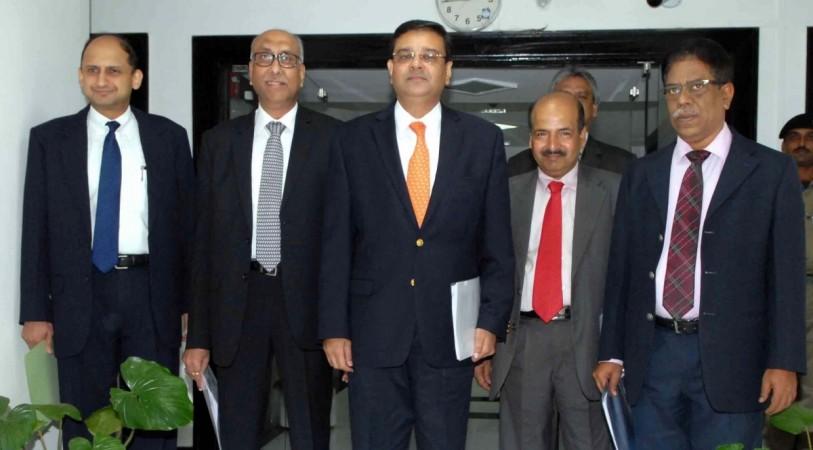
The Congress and the Bharatiya Janata Party (BJP) are likely to be on collision course over the issue of massive bad loans. The issue prompted the Reserve Bank of India (RBI) to crack the whip on top 12 defaulters who owe almost 25 percent of the overall gross NPAs of about Rs 8 lakh crore (Rs 7.7 lakh crore, according to some estimates).
The RBI has not revealed the names of the defaulting companies, but the media is abuzz with the names that includes Bhushan Steel, Alok Industries, Lanco Infratech and Monnet Ispat. RBI deputy governor SS Mundra has been quoted as saying that the bank will reveal the names at an "appropriate time".
On Friday, Monnet Ispat closed 5.11 percent lower at Rs 34, Bhushan Steel was down 6.15 percent to Rs 70, Lanco Infra ended 8.20 percent lower at Rs 2.35 and Alok Industries lost 4.30 percent.
The remark made by RBI deputy governor Dr Viral V Acharya at an event in February squarely lays the blame on the then Congress-led UPA government headed by Dr Manmohan Singh.
"There is a connection between these two outcomes – the lack of a comprehensive recognition of stressed assets by banks and the absence of any resolution.
"Both stem from the structure of incentives at our banks and the fact that stressed assets have been an outcome of excessive bank lending, en masse, in a relatively short period from 2009 to 2012, and to a concentrated set of large firms in a number of sectors such as infrastructure, power, telecom, metals (iron and steel, in particular), engineering-procurement-construction (EPC), and textiles," Acharya said on February 21 at Indian Banks' Association Banking Technology Conference in Mumbai.
Manmohan Singh was prime minister during UPA II, from 2009 to 2014, before the BJP-led NDA under Narendra Modi dethroned him in the May 2014 general elections.
Acharya had said that almost a sixth of loans given by public sector advances were non-performing assets (NPAs) at a gross level. "For banks in the worst shape, the share of assets under stress has approached or exceeded 20 percent. This estimate of stressed assets has doubled from 2013 in terms of what had been recognized by banks," he said, highlighting the severity of the issue.
The list of 12 defaulters was arrived at by the Internal Advisory Committee (IAC) that largely comprises RBI's independent board members, on June 12 at its first meeting.
How the RBI's latest gameplan cracks the whip on defaulters:
1. Lenders (banks) will initiate insolvency proceedings against the 12 defaulters in accordance with the process defined under the Insolvency and Bankruptcy Code (IBC). This basically involves filing a case with the National Company Law Tribunal (NCLT).
2. Once the NCLT accepts a case, the lender would evaluate it, as to whether to look at reviving the project or selling it to other promoters. The process (of evaluation) has to be completed in 180 days (extendable by another 90 days with the approval of the NCLT). The job will be undertaken by an insolvency professional hired for the purpose.
3. If the insolvency procedure is not completed within six months, the company will go into liquidation.
4. As regards the other non-performing accounts (outstanding amount equal to or less than Rs 5,000 crore), which do not qualify under the above criteria, the IAC recommended that banks should finalise a resolution plan within six months. In cases where a viable resolution plan is not agreed upon within six months, banks should be required to file for insolvency proceedings under the IBC.
5. The details of the resolution framework in regard to the other non-performing accounts will be released in the coming days.
6. The circular on revised provisioning norms for cases accepted for resolution under the IBC is being issued separately.













![Crying, wailing: Shia Muslims in Bengaluru, Lucknow protest killing of Iran's Ayatollah Ali Khamenei [Watch]](https://data1.ibtimes.co.in/en/full/829231/crying-wailing-shia-muslims-bengaluru-lucknow-protest-killing-irans-ayatollah-ali-khamenei.png?w=220&h=138)



